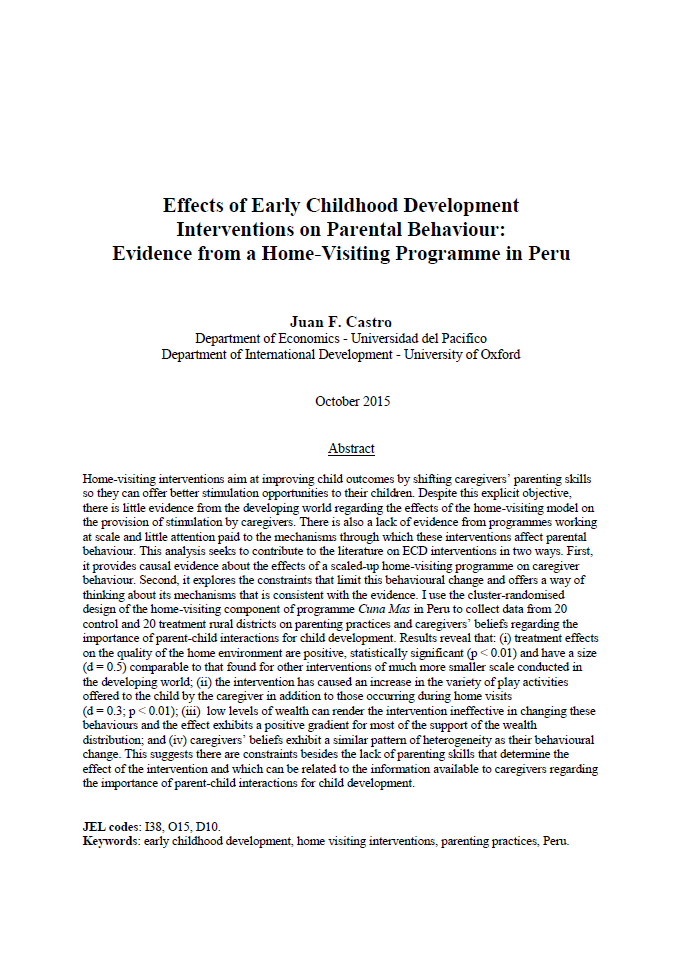Effects of early childhood development interventions on parental behaviour: evidence from a home-visiting programme in Peru
Abstract
Home-visiting interventions aim at improving child outcomes by shifting caregivers’ parenting skills so they can offer better stimulation opportunities to their children. Despite this explicit objective, there is little evidence from the developing world regarding the effects of the home-visiting model on the provision of stimulation by caregivers. There is also a lack of evidence from programmes working at scale and little attention paid to the mechanisms through which these interventions affect parental behaviour. This analysis seeks to contribute to the literature on ECD interventions in two ways. First, it provides causal evidence about the effects of a scaled-up home-visiting programme on caregiver behaviour. Second, it explores the constraints that limit this behavioural change and offers a way of thinking about its mechanisms that is consistent with the evidence. I use the cluster-randomised design of the home-visiting component of programme Cuna Mas in Peru to collect data from 20 control and 20 treatment rural districts on parenting practices and caregivers’ beliefs regarding the importance of parent-child interactions for child development. Results reveal that: (i) treatment effects on the quality of the home environment are positive, statistically significant (p < 0.01) and have a size (d = 0.5) comparable to that found for other interventions of much more smaller scale conducted in the developing world; (ii) the intervention has caused an increase in the variety of play activities offered to the child by the caregiver in addition to those occurring during home visits (d = 0.3; p < 0.01); (iii) low levels of wealth can render the intervention ineffective in changing these behaviours and the effect exhibits a positive gradient for most of the support of the wealth distribution; and (iv) caregivers’ beliefs exhibit a similar pattern of heterogeneity as their behavioural change. This suggests there are constraints besides the lack of parenting skills that determine the effect of the intervention and which can be related to the information available to caregivers regarding the importance of parent-child interactions for child development.

